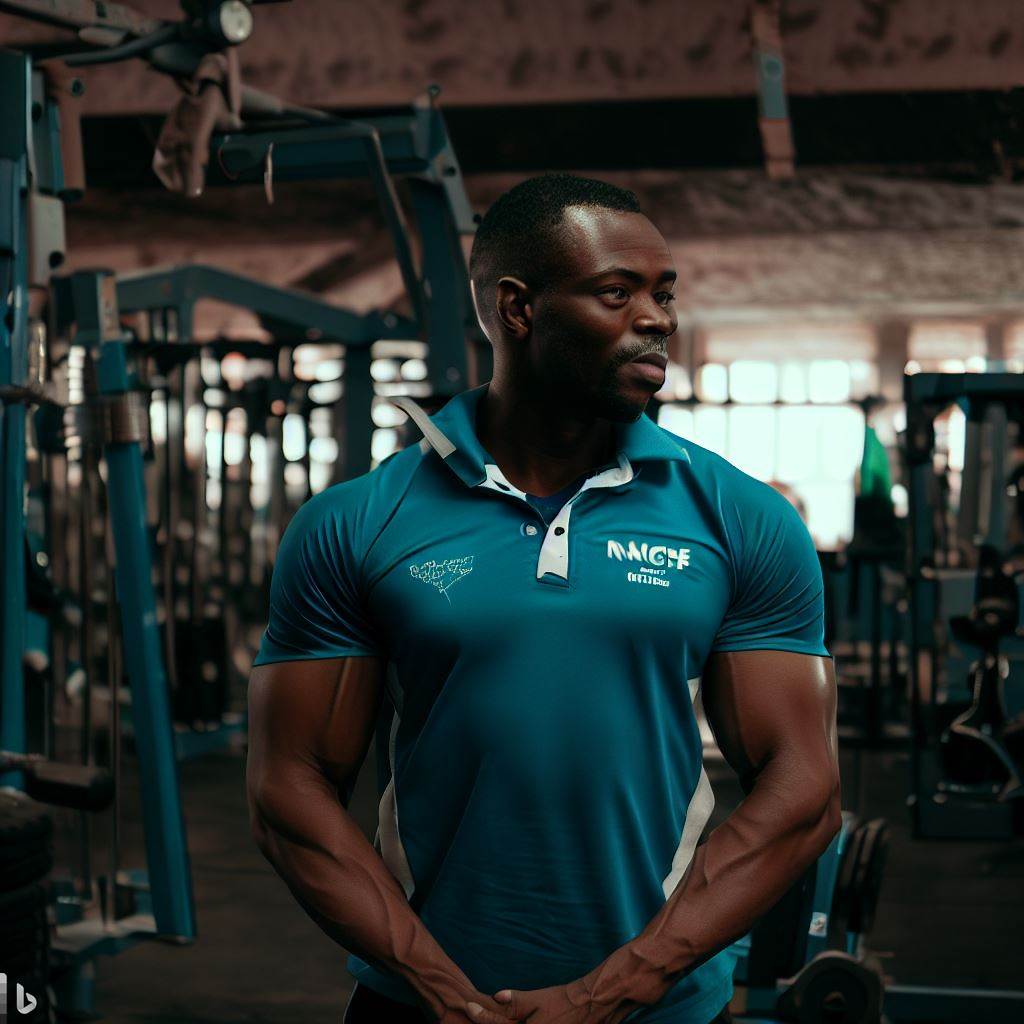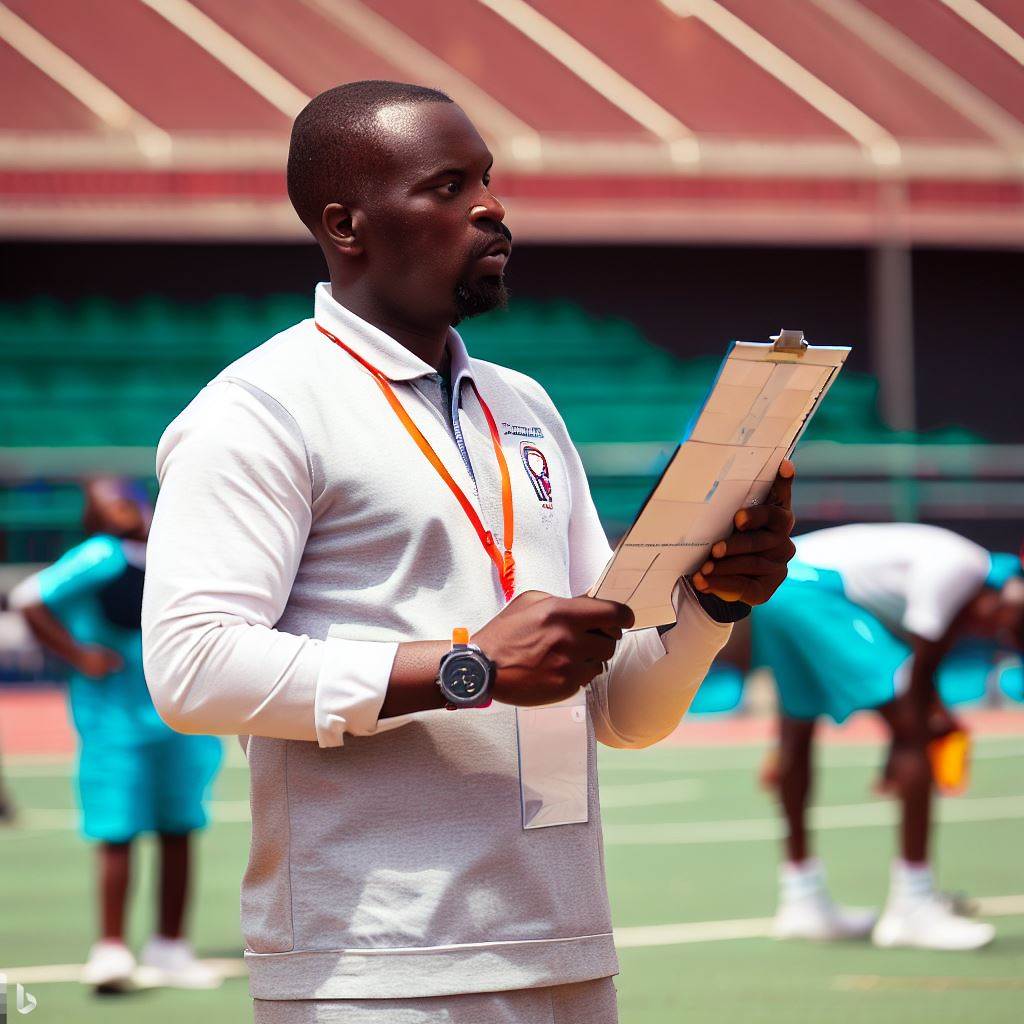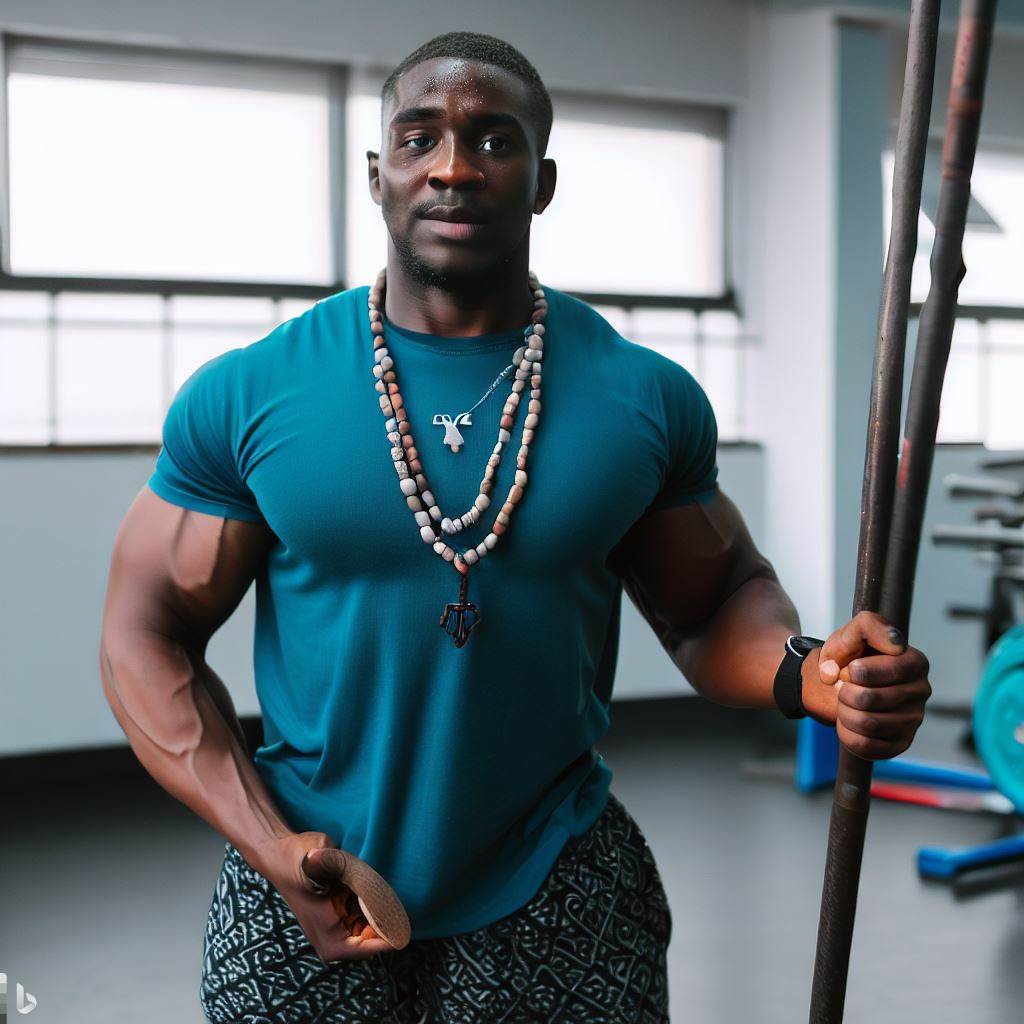Introduction
A. Strength Coaching in Nigeria
- Strength coaching is booming in Nigeria, attracting fitness enthusiasts, athletes, and professionals.
- Coaches empower clients, enhancing physical performance and overall well-being.
- This burgeoning industry demands a closer look at its legal aspects.
B. Importance of Understanding the Legalities
- Legal Framework: Knowing the laws and regulations ensures compliance and avoids legal troubles.
- Liability Protection: Understanding legalities shields coaches from potential lawsuits.
- Client Safety: Compliance ensures clients’ safety during training sessions.
- Business Viability: Complying with regulations supports a sustainable coaching business.
- Reputation: Adhering to legal standards upholds a coach’s professional reputation.
In this section, we’ll delve deeper into the legal aspects of strength coaching in Nigeria to help coaches thrive within the boundaries of the law.
Legal Framework for Strength Coaching in Nigeria
A. Overview of relevant laws and regulations
- The Constitution of Nigeria provides the basis for all laws and regulations in the country.
- The National Sports Commission Act of 1971 regulates sports activities, including strength coaching.
- The Nigerian Institute of Sports Act of 1992 establishes the Nigerian Institute of Sports as the national body for sports development.
- The Fitness Industry Regulation Bill 2020 seeks to regulate the fitness industry, including strength coaching.
B. Government agencies involved in regulating strength coaching
- The National Sports Commission oversees the development and regulation of sports, including strength coaching.
- The Nigerian Institute of Sports provides training and certification programs for strength coaches.
- The Federal Ministry of Youth and Sports Development is responsible for overall sports development in Nigeria.
- The Nigerian Sports Development Fund supports the financing of sports-related activities, including strength coaching programs.
Strength coaching in Nigeria operates within a legal framework enforced by relevant laws and regulations.
The Constitution of Nigeria serves as the foundational document that guides all legal actions in the country, including those related to strength coaching.
The National Sports Commission Act of 1971 is a crucial piece of legislation that specifically addresses the regulation of sports activities, including strength coaching.
This act establishes the National Sports Commission as the primary government agency responsible for the development, coordination, and regulation of sports in Nigeria.
It gives the Commission the power to enforce rules and regulations governing strength coaching activities, ensuring the safety and well-being of athletes and participants.
In addition to the National Sports Commission Act, the Nigerian Institute of Sports Act of 1992 plays a significant role in regulating strength coaching.
This act establishes the Nigerian Institute of Sports as the national body responsible for sports development, training, and certification programs for strength coaches.
The Institute ensures that strength coaches have the necessary qualifications and expertise to provide effective coaching services.
Recently, the Fitness Industry Regulation Bill 2020 was introduced to further regulate the fitness industry, including strength coaching.
If passed into law, this bill will set specific standards and guidelines for strength coaching facilities, professionals, and services.
It aims to ensure the safety and quality of strength coaching in Nigeria, protecting the rights and interests of athletes and clients.
Government agencies play a vital role in regulating and overseeing strength coaching activities in Nigeria.
The National Sports Commission, as mentioned earlier, holds primary responsibility for sports development and regulation.
It collaborates with other agencies, such as the Nigerian Institute of Sports, to enforce regulations and promote the continuous improvement of strength coaching standards.
Accreditation and certification requirements
A. Importance of accreditation and certification
- Accreditation and certification are essential for strength coaches in Nigeria.
- They validate the skills and knowledge of coaches in the field.
- Accreditation ensures that coaches meet national and international standards.
- Certification establishes credibility and professionalism within the coaching industry.
- It demonstrates a commitment to ongoing professional development and continuous improvement.
B. Different accrediting bodies and their requirements
- The National Strength and Conditioning Association (NSCA) is a recognized accrediting body in Nigeria.
- NSCA requires coaches to hold a Bachelor’s degree in exercise science or related field.
- Coaches must also complete the Essentials of Strength and Conditioning exam.
- Another accrediting body is the International Sports Sciences Association (ISSA).
- ISSA offers a Certified Strength and Conditioning Specialist (CSCS) certification.
- Coaches need to pass an exam and hold a valid CPR certification to become certified.
C. Benefits of being accredited and certified
- Being accredited and certified enhances the reputation and credibility of strength coaches.
- Accreditation opens doors to more job opportunities in sports teams, gyms, and fitness centers.
- Certification increases chances of higher earning potential and career advancement.
- It allows coaches to provide evidence of competency and professionalism to clients and employers.
- Accreditation and certification provide access to a network of professionals and ongoing education.
Accreditation and certification play a crucial role in the legalities of strength coaching in Nigeria.
They ensure coaches meet established standards, contribute to their professional growth, and enhance their career opportunities.
By obtaining accreditation and certification, strength coaches can showcase their expertise and commitment to providing high-quality coaching services.
It is vital for strength coaches in Nigeria to prioritize these requirements to thrive in the competitive coaching industry.
Read: Career Growth: Becoming a Top Coach in Nigeria
Liability and insurance considerations
A strength coach in Nigeria should be aware of the potential risks involved in their profession.
Injuries can occur during strength training sessions, and it is important to take necessary precautions to minimize these risks.
Liability insurance is crucial for strength coaches as it provides financial protection in case of lawsuits or claims arising from accidents or injuries.
Without insurance coverage, coaches may be personally liable for any damages or compensation.
There are several types of insurance coverage that strength coaches should consider obtaining:
A. Potential risks in strength coaching
- Injuries to clients during training sessions
- Improper technique leading to accidents
- Equipment failure or malfunction
- Overtraining resulting in physical harm
B. Importance of liability insurance
- Protects coaches from financial loss in case of accidents or injuries
- Covers legal fees in the event of lawsuits or claims
- Provides peace of mind and professional credibility
C. Types of insurance coverage for strength coaches
- General liability insurance: Covers accidents, injuries, or property damage during training sessions
- Professional liability insurance: Protects coaches against claims of negligence or professional misconduct
- Product liability insurance: Covers any injuries or damage caused by equipment or products used in training
- Business property insurance: Provides coverage for loss or damage to equipment, facilities, or inventory
It is essential for strength coaches to carefully evaluate their insurance needs and select appropriate coverage to ensure adequate protection.
Consulting with an insurance professional experienced in sports and fitness industry can be beneficial in determining the most suitable insurance policies.
Maintaining proper liability insurance coverage can contribute to the professional reputation and success of strength coaching in Nigeria.
It not only safeguards coaches from financial risks but also demonstrates a commitment to providing a safe and responsible training environment.
Read: Navigating Regulations as an Athletic Director in Nigeria

Client Contracts and Waivers
A. Importance of client contracts and waivers
- Client contracts and waivers play a crucial role in protecting both strength coaches and clients.
- They establish clear guidelines and expectations, reducing the risk of misunderstandings and legal disputes.
- Contracts and waivers provide a legal basis for the coach-client relationship, ensuring trust and professionalism.
- By signing these documents, clients acknowledge potential risks and responsibilities associated with strength training.
- Contracts and waivers help in maintaining accountability and ensuring the provision of quality coaching services.
B. Key elements to include in client contracts and waivers
- Identification details of both the client and the strength coach, including names, addresses, and contact information.
- Clearly defined scope of the coaching services and the goals to be achieved.
- Statement of the client’s commitment to following the strength coach’s instructions and advice.
- Explanation of potential risks involved in strength training and the client’s acknowledgement and acceptance of these risks.
- Outline of the payment terms, including fees, schedule, and any refund policies.
- Provisions for termination of the coaching relationship, including conditions and notice periods if applicable.
- Stipulations regarding confidentiality and the use of client information for coaching purposes only.
- Indemnity statement, stating that the client releases the strength coach from any liability for injuries resulting from the training.
C. Ensuring enforceability of contracts and waivers
- Contracts and waivers should be written in clear and simple language understandable to all parties.
- They must be signed voluntarily by clients with a sound mind and without coercion.
- If possible, it’s advisable to have contracts and waivers reviewed by a legal professional to ensure compliance with Nigerian laws.
- Coaches should keep a copy of signed contracts and waivers for their records and provide a copy to the client.
- Regularly updating and revising the contracts and waivers to reflect any changes in the coaching services or legal requirements is essential.
- Coaches should educate clients on the importance of reading and understanding the terms of the contract and waiver thoroughly.
- Effective communication and documentation of any changes or amendments to the contract or waiver are vital.
- In case of disputes, coaches can rely on the signed contracts and waivers as evidence of the client’s knowledge and acceptance of the risks associated with strength training.
Client contracts and waivers are crucial for the legalities of strength coaching in Nigeria.
They protect both coaches and clients, establish clear expectations, and provide a legal basis for the coach-client relationship.
Key elements to include are identification details, scope of services, payment terms, and an indemnity statement.
Ensuring enforceability requires clear language, voluntary signing, legal review, and proper documentation.
By prioritizing the use of contracts and waivers, strength coaches can enhance professionalism and mitigate potential legal risks.
Read: Work-Life Balance: Coaching in Nigeria Explored
Intellectual Property Protection
A. Protecting Your Coaching Methods and Programs
- Identify the unique aspects of your coaching methods and programs that set you apart.
- Document your coaching techniques, exercises, and strategies in detail to establish ownership.
- Consider seeking legal counsel to help you navigate the process of protecting your intellectual property.
- Use non-disclosure agreements (NDAs) to ensure confidentiality when sharing your methods with clients or partners.
- Watermark your digital content, such as videos or online courses, to deter unauthorized use or distribution.
- Register your coaching methods and programs as trade secrets to prevent others from replicating or profiting from them.
- Monitor the market for any unauthorized use of your coaching methods and take appropriate legal action.
B. Trademarks and Copyrights for Strength Coaches
- Conduct a thorough search to ensure your coaching brand name and logo are unique and not already registered.
- Register your brand name and logo as trademarks to establish exclusive rights and prevent others from using them.
- Consult with a trademark attorney to ensure proper registration and protection of your coaching brand.
- Understand the difference between trademarks, which protect brand names and logos, and copyrights, which protect creative works.
- Consider registering your coaching materials, such as books or training manuals, as copyrights to safeguard against plagiarism.
- Display the trademark symbol (™) next to your brand name and logo to indicate your ownership and discourage infringement.
Protect your coaching methods, trademark your brand, and ensure long-term success for your coaching business in Nigeria.
Remember to consult with legal professionals for expert advice tailored to your specific needs.
Read: Fitness Trends: Nigeria’s Strength Coaching Scene
Delve into the Subject: Local Heroes: Top Nigerian Strength Coaches
Employment Considerations for Strength Coaches
A. Hiring and contracting coaches
- When hiring strength coaches in Nigeria, it is crucial to carefully review their qualifications and experience.
- Coaches should have relevant certifications and a proven track record in the field.
- It is important to clearly define the terms of employment for strength coaches through proper contracts.
- Contracts should outline the roles, responsibilities, and compensation of the coaches.
- Additionally, contracts should specify the duration of employment and any termination clauses.
- By hiring coaches through contracts, both parties are protected legally and can resolve disputes more easily.
B. Minimum wage and fair labor laws
- Strength coaches in Nigeria must be aware of the minimum wage and fair labor laws in the country.
- Employers must ensure that coaches are paid at least the legally mandated minimum wage.
- Coaches should be provided with fair working conditions, including reasonable working hours and breaks.
- Employers should also comply with regulations regarding overtime pay, holidays, and vacations for coaches.
- Adhering to these laws ensures that strength coaches are treated fairly and their rights are protected.
C. Health and safety regulations for coaches
- It is essential for strength coaches and their employers to prioritize the health and safety of athletes.
- Coaches should have appropriate knowledge of first aid and safety protocols to handle any emergencies.
- Employers should provide a safe working environment with well-maintained equipment and facilities.
- Regular inspections and maintenance of equipment are necessary to prevent accidents and injuries.
- Coaches should also educate athletes about proper techniques and equipment usage to minimize risks.
- By following health and safety regulations, coaches can create a conducive and secure training environment.
Employment considerations for strength coaches in Nigeria play a crucial role in ensuring the legality and fairness of their work.
Hiring and contracting coaches with proper qualifications and experience, complying with minimum wage and fair labor laws, and implementing health and safety regulations are essential steps.
By addressing these aspects, both coaches and their employers can establish a mutually beneficial working relationship while safeguarding the rights and well-being of athletes.
Managing Legal Disputes
A. Resolving disputes with clients
- Communicate openly and transparently with clients to address any issues or concerns promptly.
- Document all interactions, agreements, and changes to contracts to have a clear record of the coaching relationship.
- Actively listen to clients’ perspectives and try to find mutually satisfactory solutions.
- Consider offering refunds or compensations when deemed necessary and appropriate.
- In case of serious disputes, consider engaging in a mediation or negotiation process with the client.
- Keep in mind that resolving disputes amicably can help maintain positive relationships and protect your reputation.
B. Alternative dispute resolution methods
- Explore the option of mediation, where a neutral third party assists in reaching a resolution.
- Arbitration can be considered, where a third party makes a binding decision based on evidence presented.
- Collaborate with professional organizations that offer dispute resolution services for strength coaching disputes.
- Embrace these alternative methods as they are often quicker and less costly than going to court.
C. Seeking legal advice when necessary
- Recognize the importance of seeking legal advice when facing complex disputes or unfamiliar legal situations.
- Consult with a qualified lawyer who has experience in the field of fitness or sports coaching.
- Discuss the specific details of your case to ensure you receive tailored advice.
- Obtain legal advice before signing or modifying contracts to minimize future potential legal issues.
- Regularly review existing contracts and seek legal advice for updates or revisions when needed.
- Understand that legal advice can provide guidance on navigating the Nigerian legal system.
Managing legal disputes is a crucial aspect of strength coaching in Nigeria.
Resolving disputes with clients requires open communication, documentation, active listening, and a willingness to find mutually satisfactory solutions.
Alternative dispute resolution methods such as mediation and arbitration can provide efficient alternatives to lengthy court proceedings.
Seeking legal advice when necessary is essential to protect yourself and your coaching business.
By following these practices, strength coaches can effectively manage legal disputes and maintain a positive professional reputation.
Conclusion
A. Recap of the legalities and considerations for strength coaching in Nigeria
The legalities and considerations for strength coaching in Nigeria are important to understand and comply with.
Coaches must be aware of the legal framework surrounding their profession and ensure they are operating within the boundaries.
It is crucial to obtain the necessary licenses and certifications to legally practice strength coaching in Nigeria.
Coaches should also have a clear understanding of their clients’ rights and responsibilities under the law.
B. Encouragement to be proactive in understanding and complying with the legal framework
A proactive approach to understanding and complying with the legal framework will benefit both coaches and clients.
By staying informed and updated on the legalities, coaches can ensure they are providing a safe and legal service.
Being compliant with the legal framework will help coaches gain credibility and trust from clients and fellow professionals.
Coaches should continuously educate themselves on any changes or updates in the legal requirements for strength coaching in Nigeria.
Overall, being proactive and compliant with the legal framework is essential for strength coaches in Nigeria to thrive and succeed.




